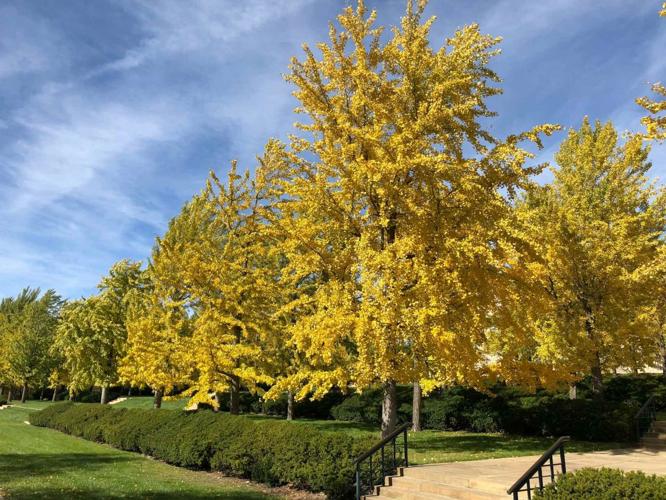
As the Baby Boomer generation continues to reach retirement age, the search for ideal retirement destinations is becoming increasingly important. Retiring in Kansas has garnered attention for its blend of affordability, community, and diverse activities. This comprehensive guide explores whether Kansas is a good place to retire and delves into the myriad factors that make the state a potential retirement haven.
Is Kansas a Good Place to Retire?
Retiring in Kansas offers a compelling combination of affordability, community, and diverse recreational opportunities, making it a noteworthy option for retirees. One of the key advantages of retiring in Kansas is the low cost of living. The state's housing costs are particularly low, with a housing cost index of 71.8 and the median home price approximately 40% less than the national average. This affordability extends to daily living expenses, allowing retirees to stretch their savings further. Additionally, Kansas exempts all Social Security income for seniors with an Adjusted Gross Income (AGI) of $75,000 or less and offers exemptions on public pension income, providing significant tax relief for retirees (Moneytology, Retire Fearless).
Healthcare is a crucial consideration for retirees, and Kansas offers a mix of benefits and challenges in this area. While the state has a decent healthcare system with several reputable hospitals, some rural areas may lack access to specialized medical services. This can necessitate longer travel times for certain treatments. On the brighter side, Kansas does not impose an estate or inheritance tax, and it has relatively low property tax rates compared to national averages, which helps in managing overall living costs (Moneytology, Stacker). Cities like Manhattan, Lawrence, and Overland Park are highly recommended for retirees due to their lower property taxes and range of amenities, making Kansas a financially viable and pleasant place to retire (Moneytology, Stacker).
Cost of Living in Kansas
The cost of living in Kansas is notably lower than the national average, making it an attractive option for those looking to stretch their retirement savings. Kansas has a cost of living index of 86.5, which is one of the lowest in the nation. Housing costs are particularly affordable, with the average home price at $194,100, which is 42.6% less than the national average.
Renting is also economical, with the average rent for a two-bedroom apartment at around $970 per month, 32% cheaper than the national average. This significant difference in housing costs contributes to Kansas’s overall affordability (World Population Review, BestPlaces). Moreover, daily living expenses in Kansas are also lower than in many other states. Groceries and clothing are approximately 9% cheaper than the national average, and utilities align closely with national costs.
Healthcare expenses are slightly higher than the national average, but still manageable, with Kansas’s healthcare index at 91.2. Transportation costs are also lower, largely due to reduced fuel prices, making commuting more affordable. These factors collectively ensure that the cost of living in Kansas remains favorable, allowing residents to maintain a comfortable lifestyle without significant financial strain (RentCafe, Living Cost).
Tax Benefits for Retirees
Kansas offers several tax benefits that make it an appealing state for retirees. One of the most significant advantages is that Social Security income is exempt from state taxes for individuals with an Adjusted Gross Income (AGI) of $75,000 or less.
This exemption allows many retirees to enjoy their Social Security benefits without the additional burden of state taxes, providing more financial flexibility during their retirement years.
Additionally, public pension income is also exempt from state taxation, which includes pensions from state and local government jobs. However, other types of retirement income, such as distributions from 401(k) plans and IRAs, are fully taxable in Kansas. Despite the favorable income tax policies, Kansas does have some drawbacks regarding property and sales taxes. The state’s property taxes are higher than the national average, with an effective property tax rate of about 1.41%.
This means residents can expect to pay higher annual property taxes compared to many other states. Moreover, Kansas has relatively high sales taxes, with a statewide rate of 6.5%, and localities can add additional taxes, bringing the average combined rate to around 8.65%. On a positive note, Kansas has started to lower its sales tax on groceries, aiming to phase it out completely by 2025, which will help reduce the overall tax burden for retirees.
Healthcare in Kansas
Healthcare in Kansas is characterized by a mix of affordability and comprehensive coverage options, though it also faces challenges typical of many states. The Kansas health insurance marketplace for 2024 features a variety of plans from multiple insurers, including new entrants like Aetna and existing providers such as Oscar and Ambetter.

These plans span various tiers, from catastrophic to gold, ensuring that residents can select coverage that best fits their medical needs and financial situations. Notably, the average premium for a benchmark silver plan has increased by 3.5% for 2024, which is slightly below the national average increase. Despite the premium hikes, many residents can still find affordable options, with subsidies available to lower-income individuals and families to reduce their out-of-pocket expenses (Kansas Health Institute, Healthcare.gov).
The University of Kansas Health System stands out as a top healthcare provider, offering advanced medical treatments and comprehensive services at over 140 locations. This system is highly regarded for its specialized care, including its renowned brain tumor program and support for complex medical conditions. Additionally, Kansas residents have access to KanCare, the state’s Medicaid program, which provides coverage to various eligible groups, including low-income families, the elderly, and individuals with disabilities.
KanCare offers additional benefits like dental coverage and wellness programs, enhancing the healthcare support available to its members (UnitedHealthcare Community Plan, The University of Kansas Health System).
Climate and Weather
Kansas experiences a wide range of climatic conditions, characterized by its position in the heartland of the United States. The state enjoys four distinct seasons, each bringing its unique weather patterns. Winters in Kansas can be quite cold, especially in January, which is typically the coldest month with average high temperatures around 31°F.
Significant snowfall can occur, particularly during impactful winter storms, as seen in January 2024 when blizzard conditions affected much of the state. Conversely, summers are warm to hot, with July being the hottest month, where average high temperatures can reach up to 88.9°F, especially in areas like Kansas City. The summer months also bring long daylight hours, averaging 14.5 hours in June, which is ideal for outdoor activities and enjoying the state's natural beauty.
Rainfall in Kansas is spread throughout the year, but the summer months, particularly June, are the wettest. This period sees significant thunderstorm activity, especially in the eastern parts of the state, contributing to higher humidity levels. Kansas averages about 40.2 inches of rainfall annually, with June alone receiving between 2 to 6 inches depending on the region. The state's location in Tornado Alley means that severe weather, including tornadoes, is a common occurrence during the spring and early summer months. These weather patterns make Kansas a state of climatic extremes, where residents experience everything from harsh winters and severe storms to hot, humid summers.
Best Places to Retire in Kansas
Kansas offers several excellent options for retirees seeking a blend of affordability, cultural activities, and a friendly community. Manhattan, often referred to as "The Little Apple," is a standout location for retirees. This college town, home to Kansas State University, provides a vibrant atmosphere with a variety of cultural and recreational activities. The cost of living is relatively low, and the town boasts a low crime rate, making it a safe and economical choice for retirement.
Similarly, Lawrence, another college town, offers a lively arts and cultural scene with numerous galleries, museums, and theaters. The cost of living in Lawrence is also lower than in many other U.S. cities, making it an attractive option for those looking to stretch their retirement savings.
For those preferring a suburban lifestyle with easy access to urban amenities, Overland Park is a prime choice. Located in the Kansas City metropolitan area, it offers a relaxed, small-town feel while providing access to big-city amenities. Overland Park features excellent healthcare facilities, a variety of parks, and recreational centers, and maintains a high quality of life with a low cost of living. Other notable mentions include Hutchinson and Topeka. Hutchinson, located in central Kansas, offers cultural attractions, a low crime rate, and affordable living. Topeka, the state capital, provides a range of cultural and recreational activities along with affordable housing options, making it an appealing choice for retirees.
Kansas offers a unique and appealing option for retirees. With its affordable cost of living, tax benefits, diverse recreational activities, and a strong sense of community, Kansas is a good place to retire. While potential challenges like extreme weather and limited healthcare options in rural areas exist, the overall benefits make Kansas a viable and attractive destination for those looking to enjoy their golden years in comfort and peace. For those considering moving to Kansas, hiring a professional moving company can simplify the relocation process. These companies can efficiently transport your belongings and provide valuable insights into the city, helping you settle in smoothly.
With ongoing investments in infrastructure and public transit, Kansas is ensuring that both residents and newcomers can enjoy a well-connected and accessible environment.






(0) comments
We welcome your comments
Log In
Post a comment as Guest
Keep it Clean. Please avoid obscene, vulgar, lewd, racist or sexually-oriented language.
PLEASE TURN OFF YOUR CAPS LOCK.
Don't Threaten. Threats of harming another person will not be tolerated.
Be Truthful. Don't knowingly lie about anyone or anything.
Be Nice. No racism, sexism or any sort of -ism that is degrading to another person.
Be Proactive. Use the 'Report' link on each comment to let us know of abusive posts.
Share with Us. We'd love to hear eyewitness accounts, the history behind an article.